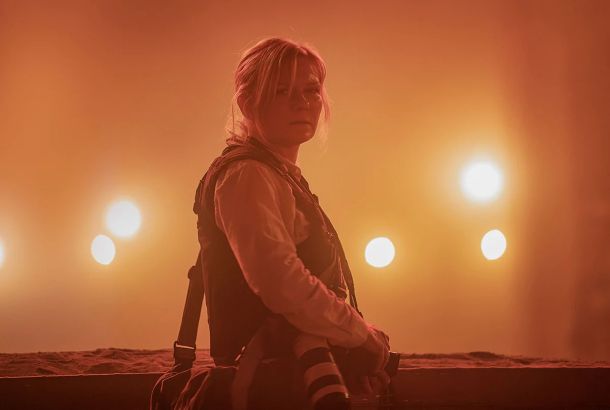An introduction to the films of Ken Loach

Ken Loach is undeniably one of the most prolific and important voices in British cinema. Yet, with over 50 years of filmmaking and almost the same number of features to his name, it’s almost impossible to know where to start. Ahead of his latest film, The Old Oak, we’ll take you through the essentials in his filmography and get to the heart of what keeps the man making films well into his 80s.
Kitchen sink realism
Loach got his start working for the BBC, directing plays and TV films that pushed the boundaries of acceptability at the time. From highlighting topics such as abortion in Up the Junction (1965) and homelessness in Cathy Come Home (1966), he soon garnered a reputation for being somewhat of a provocateur. Refusing to play by the rules of the markedly bourgeois cinema of the time, Loach soon became a central figure in the kitchen sink realism movement.
Amongst this era of his output, one cannot ignore Kes (1969) – an unmissable part of his filmography and an early marker of Loach’s passion for working-class issues. This tells the story of Billy, a young boy who’s lost and in trouble at school when suddenly he discovers a passion for falconry by adopting a kestrel. Both a heartfelt portrait of late 1960s Yorkshire and a sharp critique of the British education system, it has become a staple in the canon of great British films.
Ken Loach across the globe
Although now considered one of Britain’s greatest directors, this was not always the case and, in fact, Loach arguably owes much of his success to the European festival circuit. A frequent favourite at Cannes, he holds the record for the most films shown in the main competition with fifteen to date. Perhaps reflecting this tendency in his films’ reception or simply owing to access to higher budgets, many of Loach’s mid-career films explore international issues. From the US justice for janitors campaign in Bread and Roses (2000) to the Nicaraguan war in Carla’s Song (1996), Loach extends his critique of unjust power to a wide array of both contemporary and historical issues.
Highlights in this strand of his filmography are his pair of civil war dramas Land and Freedom (1995) and The Wind That Shakes the Barley (2006). Both films combine Loach’s grounded style and typically nuanced political dialogues within captivating historical dramas. At the centre of each is a focus on the people caught within the wider conflicts and yet also a sophisticated commentary on the larger groups involved. Loach is a lifelong socialist and his political ideals are present throughout all his work but he does not make simple propaganda. Within a film like Land and Freedom lies a critique not only of fascism but also of the division within the left and its hypocritical leadership.
Similarly, in The Wind That Shakes the Barley, the civil war is literalised through a division between two brothers who find themselves on different sides of the political debate. Debate and dialogue are almost more powerful than gunfire here and yet each film still reminds the audience of the shocking power of violence. Some of Loach’s films, such as his outlier comedy Looking for Eric (2009), could be described as hopeful but these stories of failed social revolutions certainly lie on the bleaker side of his work.
A return to his roots
In recent years, despite a brief attempt at retirement in 2014, Loach has returned back to making films about working-class issues in the regions of England. Much like Agnès Varda was to the French New Wave, Loach continues to make films in the social realist vein long after the original movement has died out. Still working with his long-time collaborator writer Paul Laverty (with whom he has made 16 films), his recent stories have focused on the universal credit benefits system and precarious work in the gig economy. His upcoming film The Old Oak seems to continue in this manner also, a story of immigration and the British pub in an ex-mining community.
The clear standout from this later output is I, Daniel Blake (2016). A masterful blend of striking political commentary and human drama, it is a film pertinent to the issues of the day with its critique of universal credit and its discussion of food banks. It is also a film close to my heart, set in my hometown of Newcastle and one which I contend is perhaps Loach’s best film to date.
An imperfect trilogy
You could almost select any three films out of his filmography and you’d be onto a winner but I suggest to you this: Start with I, Daniel Blake – one of his most accessible works and yet also arguably his most effective. From here move on to Land and Freedom, a striking civil war drama that truly shows the breadth of his work and is an epic in its own right. Finally, go back to where it all began and watch Kes, all the later themes of solidarity and class are here alongside a fascinating portrait of late 1960s Yorkshire.
If these recommendations are perhaps a little too basic then I’d also highlight Carla’s Song as an underrated entry. This film combines screenwriter Paul Laverty’s interest in South American politics with Loach’s humane lens to great effect. Moreover, an honourable mention goes to Versus: The Life and Films of Ken Loach (2016) which is a good introductory documentary on his work.
The Old Oak releases in cinemas 29 September 2023 – look out for our review of it here!







